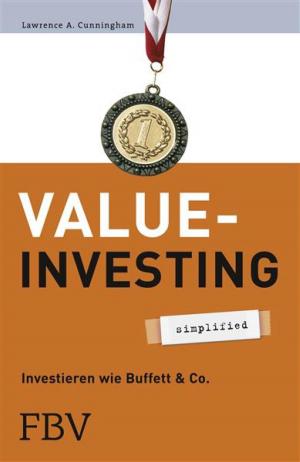| Author: | Paul Shona | ISBN: | 9781986101264 |
| Publisher: | Paul Shona | Publication: | June 7, 2018 |
| Imprint: | Language: | English |
| Author: | Paul Shona |
| ISBN: | 9781986101264 |
| Publisher: | Paul Shona |
| Publication: | June 7, 2018 |
| Imprint: | |
| Language: | English |
A heart-touching tale of families ravaged by rising personal debt and changes in the labour market due to rapidly growing automation, computer and digital technology on one hand, and international trade agreements facilitating out-sourcing of jobs from high to low-wage countries, on the other.
Robert Vaughan, the primary bread-winner of a family, with a well-paid job, has been managing his home, meeting needs of family, and paying off regular monthly and other unexpected financial obligations. Since his net bi-weekly pay is mostly eaten by the mortgage on the house and its property taxes, he is left with an amount too little to pay off monthly bills and an unexpected expenditure. To discharge his financial obligations, he leans heavily on funds borrowed on a number of credit cards and lines of credit to keep the wolf away from his door. With no savings and low cash flow, he is simply able to make, and at times even juggle, with minimum payments on loans outstanding. He recognizes that by making a minimum payment on each loan, he isn't defaulting on any loan and that, in turn, essentially protects his credit worthiness, and makes him eligible to apply and get one consolidation loan after another. Life on credit has its toll: sad and depressed mood, stress, lack of sleep, living with fear, suicidal tendency, low self-esteem, poor relationship with his spouse, children, and friends, and unending anxiety to find a source to supplement his income.
His co-worker, Jennifer Cartwright, on the other hand, is married to Peter, a well educated man with a Masters certificate in computer sciences from a Canadian university. He holds the opinion that after acquiring that level of education, he is ready to pursue a stable career path for life. He fails to recognize that the kind of skill-set he holds can be totally obsolete over a short span in a rapidly changing labour market, and not only that, the type of job he holds can also easily be out-sourced to a low-wage country. After he's declared redundant, he accepts a job as a security guard, and abandons his family rather than try to upgrade skills to not only improve his job prospects, but also the up-keep of his family.
Both Robert and Jennifer are stressed out – the former because of too much reliance on credit, and the latter due to the out-sourcing of her husband's job. They agree to support one another and enter an agreement in order to keep their sanity to perform their job as well as maintain their respective family units.
What was their agreement? Did it last? Did Robert find a source to supplement income? Did Jennifer and Peter get back together? What happened to children in such families?
Find out …
A heart-touching tale of families ravaged by rising personal debt and changes in the labour market due to rapidly growing automation, computer and digital technology on one hand, and international trade agreements facilitating out-sourcing of jobs from high to low-wage countries, on the other.
Robert Vaughan, the primary bread-winner of a family, with a well-paid job, has been managing his home, meeting needs of family, and paying off regular monthly and other unexpected financial obligations. Since his net bi-weekly pay is mostly eaten by the mortgage on the house and its property taxes, he is left with an amount too little to pay off monthly bills and an unexpected expenditure. To discharge his financial obligations, he leans heavily on funds borrowed on a number of credit cards and lines of credit to keep the wolf away from his door. With no savings and low cash flow, he is simply able to make, and at times even juggle, with minimum payments on loans outstanding. He recognizes that by making a minimum payment on each loan, he isn't defaulting on any loan and that, in turn, essentially protects his credit worthiness, and makes him eligible to apply and get one consolidation loan after another. Life on credit has its toll: sad and depressed mood, stress, lack of sleep, living with fear, suicidal tendency, low self-esteem, poor relationship with his spouse, children, and friends, and unending anxiety to find a source to supplement his income.
His co-worker, Jennifer Cartwright, on the other hand, is married to Peter, a well educated man with a Masters certificate in computer sciences from a Canadian university. He holds the opinion that after acquiring that level of education, he is ready to pursue a stable career path for life. He fails to recognize that the kind of skill-set he holds can be totally obsolete over a short span in a rapidly changing labour market, and not only that, the type of job he holds can also easily be out-sourced to a low-wage country. After he's declared redundant, he accepts a job as a security guard, and abandons his family rather than try to upgrade skills to not only improve his job prospects, but also the up-keep of his family.
Both Robert and Jennifer are stressed out – the former because of too much reliance on credit, and the latter due to the out-sourcing of her husband's job. They agree to support one another and enter an agreement in order to keep their sanity to perform their job as well as maintain their respective family units.
What was their agreement? Did it last? Did Robert find a source to supplement income? Did Jennifer and Peter get back together? What happened to children in such families?
Find out …















